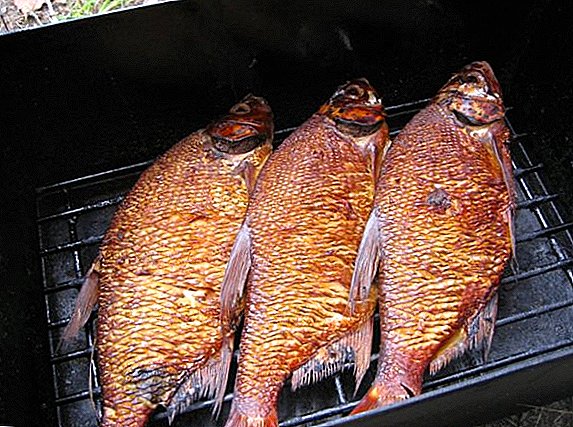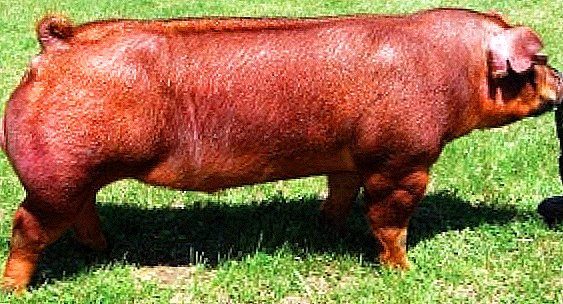 According to statistics, the average family in our country eats about 120 kg of onions per year. This amounts to about 4-6 kg of husk, which has many useful macro- and microelements. Apply the onion peel both for medicinal purposes and in the prevention of diseases of garden plants. A solution from the husk can be watered the soil in the garden, enriching it with useful minerals.
According to statistics, the average family in our country eats about 120 kg of onions per year. This amounts to about 4-6 kg of husk, which has many useful macro- and microelements. Apply the onion peel both for medicinal purposes and in the prevention of diseases of garden plants. A solution from the husk can be watered the soil in the garden, enriching it with useful minerals.
Onion Husk: composition and properties
Onion peel contains many organic substances and vitamins. Among them: phytoncides, carotene, vitamins of groups B and PP. After applying onion peel in the garden, all these substances are activated and benefit plants and soil.
Carotene (orange-yellow pigment) is an active antioxidant that can suppress the production of free radicals. It destroys any harmful microorganisms in the soil, thus protecting the plant. The addition of carotene to the balcony flower plants contributes to their endurance, especially in the "gassed" megalopolises. This macro element is also used for nursing seedlings.
Did you know? Onion-based onion peels are made from phytoncides "Imanin"which is used to treat purulent wounds.
Phytoncides - These are biologically active volatile substances (BALV), which are released by plants in the course of their vital activity to suppress the activity of any foreign microorganisms. In the period of plant phytoncides are concentrated in all parts of the onion, but especially there are a lot of them on the peel. BALV can destroy fungal spores and even single-celled organisms such as the ciliate infusoria. For the prevention of "black legs" in seedlings used tincture onion peel, because it copes well with this disease.
The largest percentage of all trace elements in onions falls on vitamins of group B. During growth, these vitamins help plants to process carbohydrates into nutrients.. If you apply the tincture of the peel as a fertilizer, then these vitamins will help any plants to strengthen the root system and the stems. 
Important! The onion peel also contains a small amount of vitamin E, which helps plants improve photosynthesis.
Vitamins of the PP group (the substance is also known as nicotinic acid) can improve the processing of nitrogen into oxygen and stimulate the processing of sulfur in plants. These vitamins will be very beneficial for plants that grow in the shade and need sunlight. Nicotinic acid is able to strengthen the roots, especially in need of trees and grasses growing in alumina. 
There are already ready fertilizers with a whole group of minerals and vitamins, for example: Plantafol, Crystal, Kemiroy, Signor Tomato, Stimul, Azofoska
How to apply the tool
Onion peel as a fertilizer is used in the garden, in the garden, on the balcony and on the terrace, and for which plants and in what dosages to use - we will describe below. It is believed that decoction in any quantity will not harm the plant. The soil will absorb the liquid, take all the necessary trace elements, and the rest will remain in the soil.
Application of decoction

Broth of onion peel can be sprayed plants, as well as watered at the root, since the use of this solution is safe for any plant: it is used for indoor flowers, and for vegetable garden crops.
To prepare a decoction of the skin, you will need a bucket of forty-degree water and two glasses of tightly packed husk. All this needs to be mixed and brought to a boil. Then you should give time to settle the broth for 3-4 hours, after which you can spray tomatoes, cucumbers, squash, zucchini, potatoes, etc. 
If the cucumbers begin to turn yellow leaves, spraying this broth will help them to restore the exchange balance. Spray need 2-3 times after yellowing leaves with an interval of 10-15 days. Such tincture can also be sprayed squash, stimulating them to new ovaries. After any treatment, almost any plants will rejuvenate and start producing more fruits.
Did you know? The most common way to decorate an Easter egg is to cook it with onion peel. Thus, the egg becomes chocolate brown.
If indoor plants begin to dry out, ask for help to the broth from the onion peel. All the trace elements it contains will destroy pests in the soil and help the plant's root system recover.
Many people ask: is it possible to water the seedlings with broth of onion peel? Of course, it is possible, and even necessary! After watering decoction of the roots and leaves of your cucumbers, tomatoes, peppers, etc. get stronger and can easily transfer the process of transplantation in the garden. In addition, the decoction will help get rid of harmful microorganisms in the soil in which the seedlings grow. 
Infusion
Infusion of onion peel - a more practical tool than a decoction. It contains more micro-and macronutrients, as water draws all the useful substances from the onion peel throughout the day. To prepare such a decoction, you will need 500 g of husk and 2.5 liters of warm water. Tincture should be kept for 17-20 hours in a dark place. The container must be hermetically sealed.
This infusion is used against powdery mildew in cucumbers. They need to be sprayed 3-4 times with an interval of 5-6 days and, as gardeners say, the disease will go away without a trace. But it is best not to bring to the extreme case. It is possible to spray in the preventive purposes once in 1,5-2 weeks. 
Important! It is necessary to use tincture from onion peel at a time, as long storage leads to loss of its properties.
This tool is perfect for flowers: tulips, daffodils, hyacinths, crocuses. If the plants freeze during the spring night frosts, then they need to be watered with an infusion of onion peel, and the flowers will literally “come to life”. Vitamins of group B will help plants to strengthen the root system and restore their defenses, as well as kill all foreign microorganisms in the soil. Spraying onion peel of tulips at the time of punching through the soil will accelerate the growth and flowering processes.
Infusion of the onion peel can be watered balcony and indoor plants. This tool will help to overcome a dangerous pest - spider mite. And if your flowers are constantly in the shade and a little wilted, then this tincture will help them to restore the active process of photosynthesis, after which the "second breath" will open.
Application as usual
Before the start of frost, onion peel is recommended to be used as mulch. Husk can cover the roots of all the perennial herbs of your garden to protect them from severe winter frost, and the soil will get its percentage of useful organic trace elements.
Did you know? In the 11th century AD, the Persian doctor Ibn Sina wrote about the onion peel: "If the water is dirty and riddled with a bad smell, you should drop the onion peel into it and the smell will go".
In the spring of cleaning the onions are applied to the soil on the place where the seedlings will be planted. 1-2 weeks before planting, the onion husks need to be scattered on the ground and dig it. It will destroy all pests in the soil and enrich it with vitamins and minerals. Seedlings in such a place will grow faster and less sick.
Wood ash can also be used as a fertilizer for your garden.
If you put the peel of onions in the soil when planting tomatoes and cucumbers, then the risk of infection of these plants with a “black leg” is reduced. Peel in the soil remains active for at least 5-6 months. 
The advantages of using in the garden
Onion peel was used for feeding plants from ancient times. When there were no plants for the manufacture of poisons and fertilizers by chemical means, onion peel was considered an indispensable tool in the garden.
Important! Scientists have shown that onions can kill not only pests in the soil, but also Koch’s wand, which is the causative agent of tuberculosis.The advantages of using husks:
- The husk contains many phytoncides, which are biological protective agents of any plants. They are capable of killing a lot of viruses and fungi and not harming the roots of flowers and vegetables (in contrast to some products made artificially by chemical means).
- Using this tool, you can not spend a lot of money on the purchase of poisons and fertilizers: just collect the husks with onions in bags.
- Onion Husk is an excellent mulch. It contains much more nutrients than the leaves of trees or perennial grasses.
- Infusion or decoction of onion peels is very easy and quick to prepare. And for its preparation does not require additional expensive substances.












